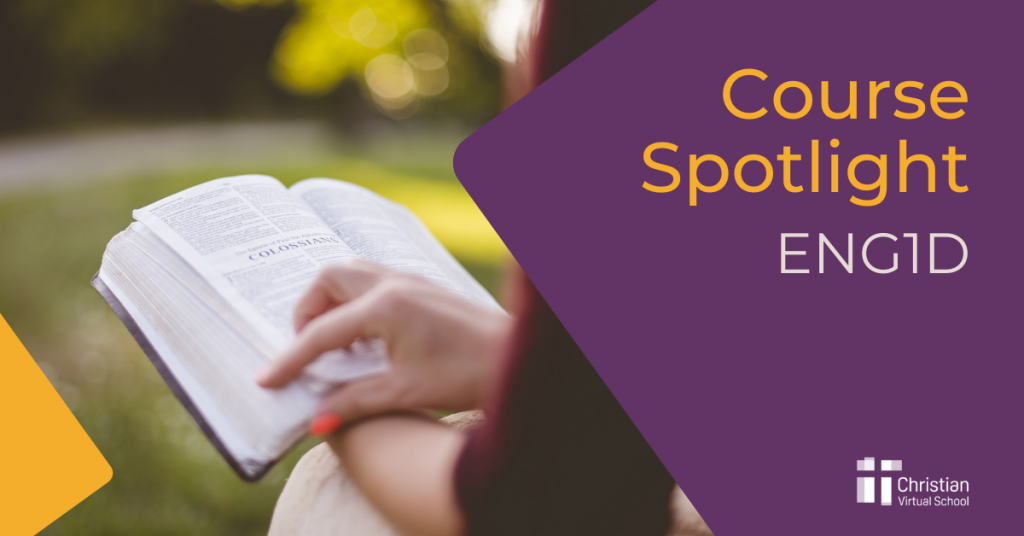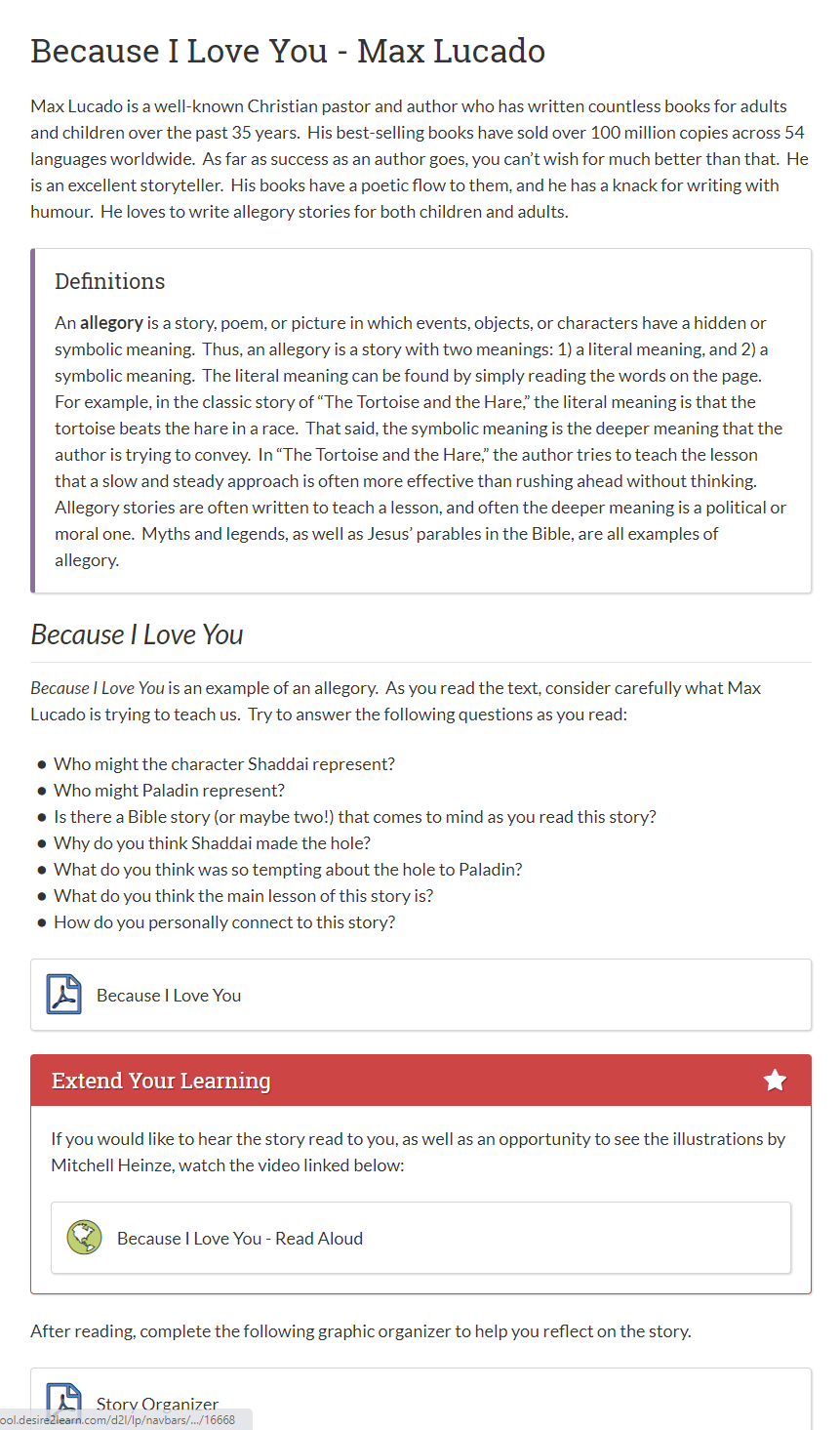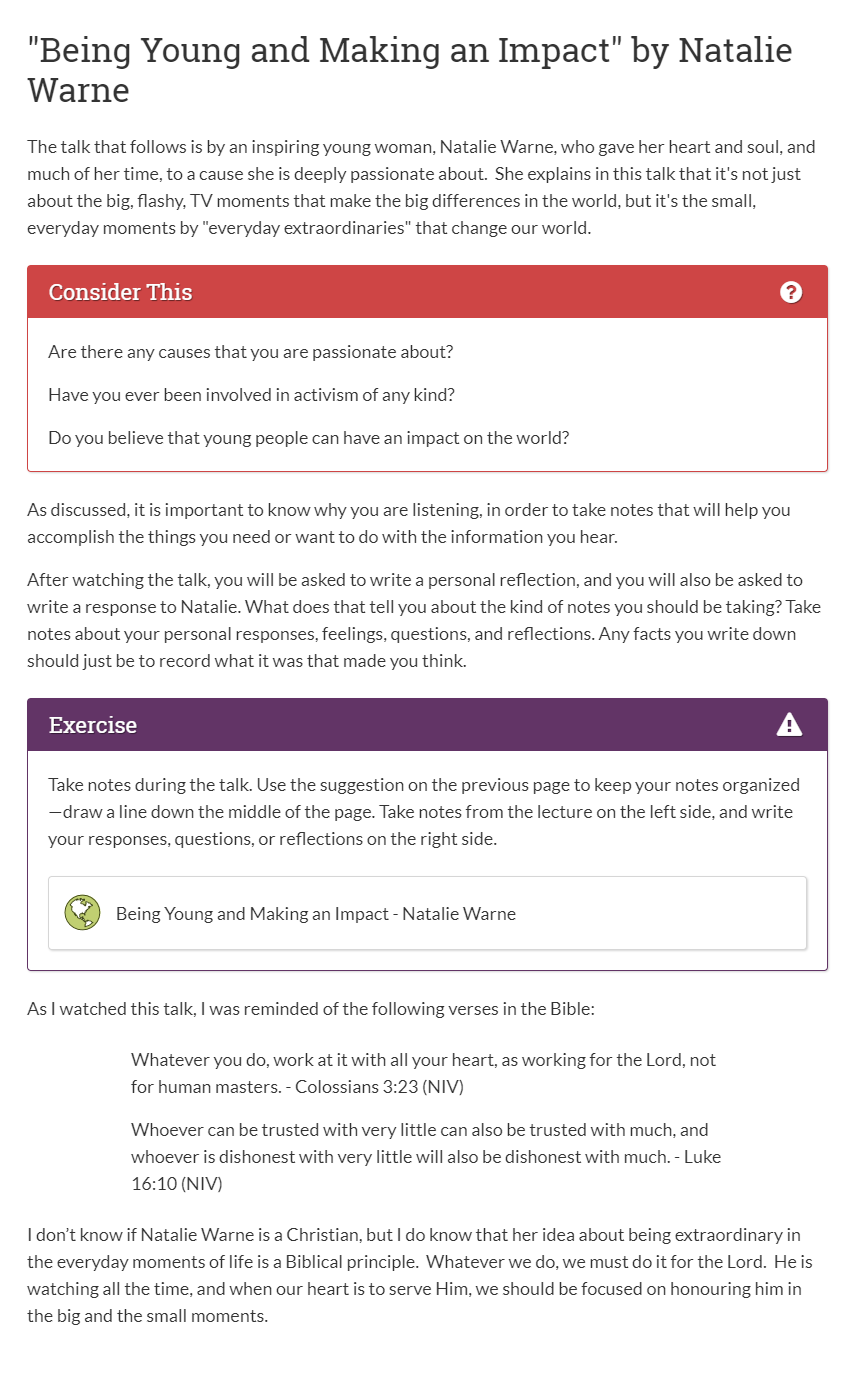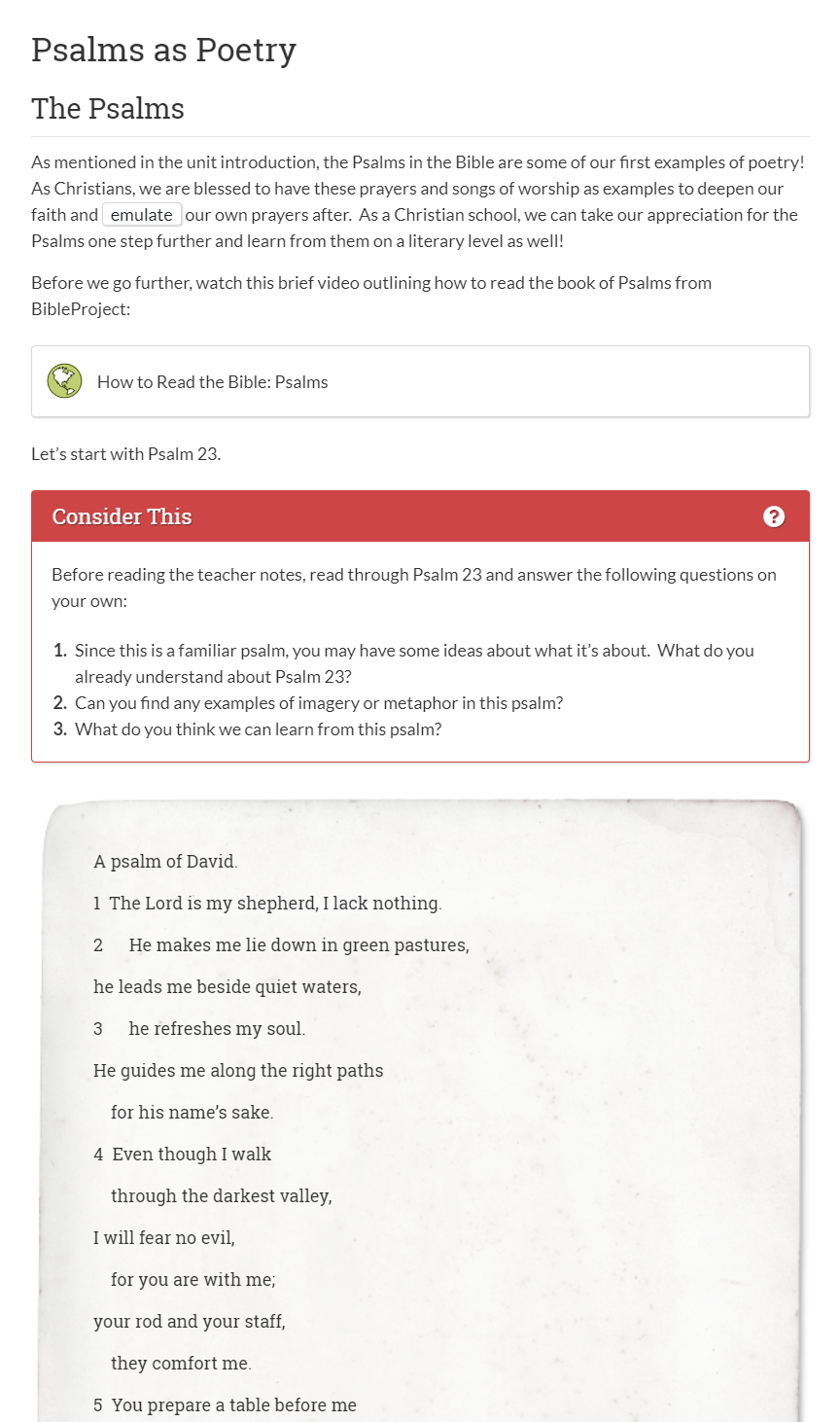 As Elyse Gosselin was writing our Grade 9 English course, she discovered incredible avenues to provide students with opportunities to grow deeper in their faith. She built this course with two main objectives:
As Elyse Gosselin was writing our Grade 9 English course, she discovered incredible avenues to provide students with opportunities to grow deeper in their faith. She built this course with two main objectives:
- To develop the oral communication, reading, writing, and media literacy skills that our CVS students need for success in their secondary school academic programs and in their daily lives.
- To give students an opportunity to grow deeper in their faith while giving them the skills needed to approach texts with a Christian worldview and critical eye.
In this course, students analyze and create texts using the Scripture as their compass. The hope is that as students learn important academic skills, they will also be inspired, strengthen their beliefs, and grow in their personal faith.
Course Highlights



Course Breakdown
This course is divided into five units, all with different themes connected to a Christian perspective.
Unit 1 covers the basics of academic reading and writing. Reading comprehension strategies including active reading are discussed. Students also review the basics of sentence and paragraph composition, as well as the fundamentals of academic essay writing.
Unit 2 gives students an opportunity to explore a collection of short pieces of writing – poems, psalms, short stories, myths, and songs. As a Christian school, we have a unique opportunity to choose texts that are written by Christians or contain faith-based themes. Students analyze a psalm as part of their study of poetry, and read a short story written by Christian author, Max Lucado, as part of their discussion on short stories. Students are encouraged to look closely at the themes and intended messages portrayed in these texts. Learning about various literary devices and analyzing these shorter texts will help to prepare students to utilize the same knowledge and skills for longer and more challenging texts.
During Unit 3, students will jump back in time to explore one of Shakespeare’s most well-known comedies: Twelfth Night. This play about love is set in a festive atmosphere when three couples are eventually brought together happily. While the events are somewhat humorous and everything turns out alright in the end, there are some valuable lessons to be learned about the fruits of folly and the risks of deception. Students compare the themes and events in the play against the truth of Scripture, and in the end, complete a culminating activity outlining the lessons that can be learned from the character’s experiences in the play.
Unit 4 dives into J.R.R. Tolkien’s world of Middle-earth as students study The Hobbit. This fantasy text follows a traditional quest structure, which provides plenty of opportunities for students to explore themes of growth, perseverance, courage, right and wrong, greed, and providence. Students discover how Tolkien’s Christian faith is quite evident upon a close reading of the themes and imagery he writes about.
The final unit, Unit 5, gives students an opportunity to hone their communication skills. Students learn about listening, note-taking, and speaking skills, as well as presentation and media skills. Students have the opportunity to hear inspiring stories from amazing youth, and consider the impact that they can have as youth in this changing world. The theme for this unit is based on 1 Timothy 4:12: “Don’t let anyone look down on you because you are young, but set an example for the believers in speech, in conduct, in love, in faith and in purity.”
At the end of the course, students will have the opportunity to reflect on their growth as readers and writers. Hopefully they will also consider how they have grown as Christians as well! To learn more about this course, you can view the course outline on our website.




